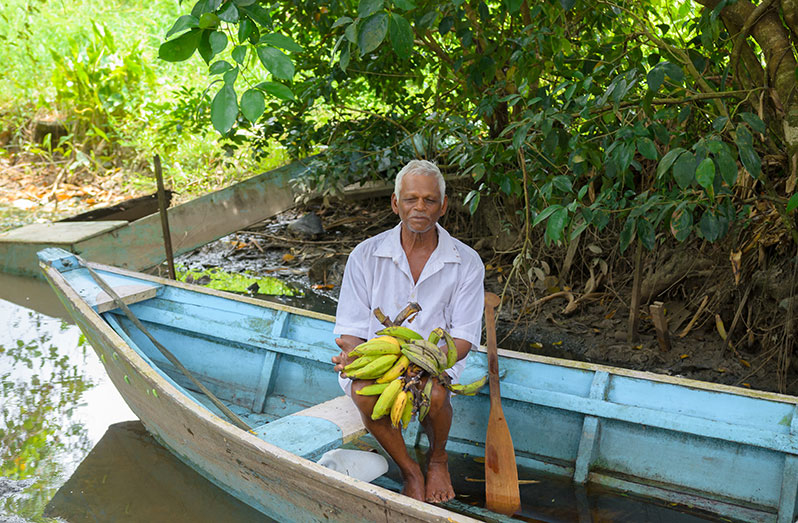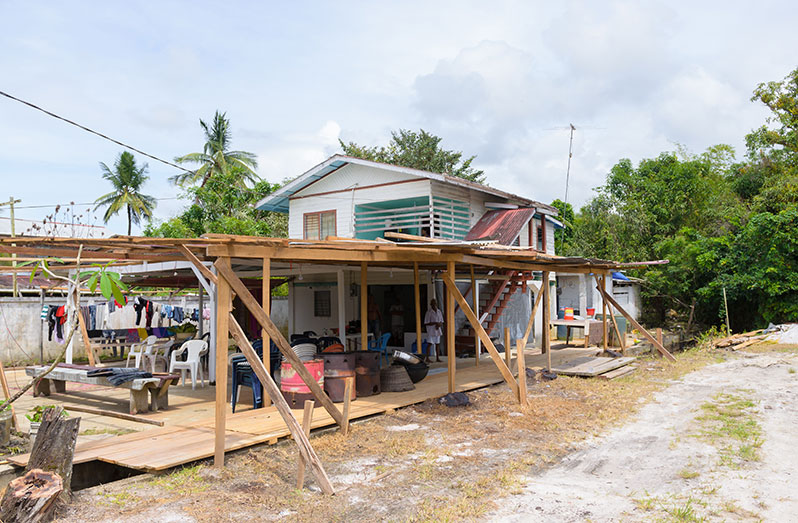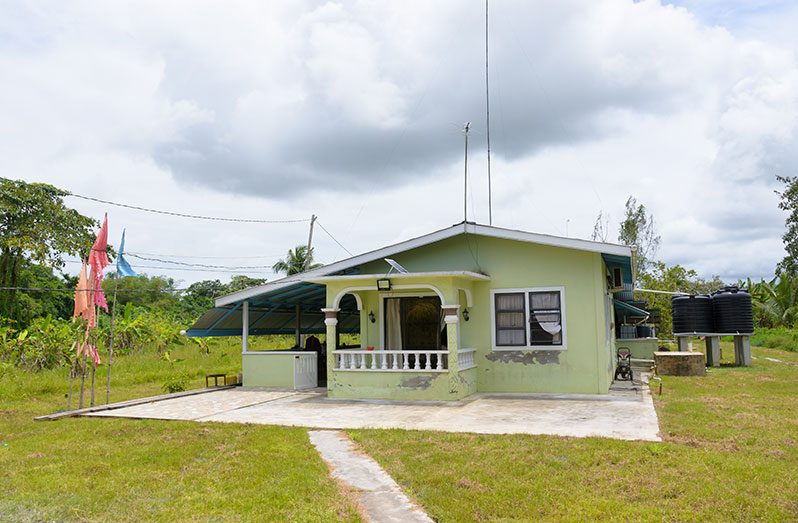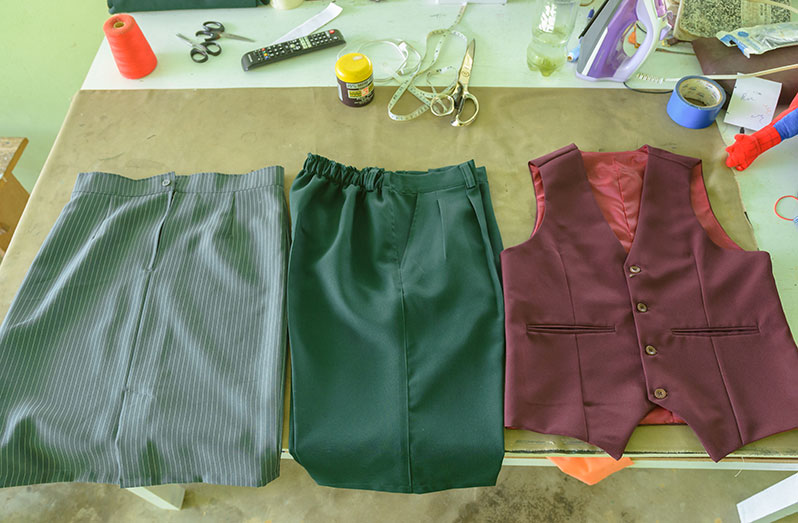MAHINDRA Ramkissoon is the village tailor, and when that small business is slow, he would cultivate cash crops and ground provisions on a plot he has aback his house in Unity Village, East Bank Essequibo.
It is a coveted trade he acquired as a boy, watching his father, he was a tailor too, and as he got older he became confident enough to establish a small business from his home as a tailor.
The 56-year-old told the Pepperpot Magazine that he took an early liking to the trade; when the boys used to go out and play, he stayed in at times just to learn to sew.
Upon his return to Guyana 27 years ago from neighbouring Suriname where they lived for 14 years, he established his tailoring business.

His parents have since passed away, but he has three siblings who still reside in Suriname and others are here in Guyana, too.
The father of two added that he can sew any outfit from working uniforms to suits, to jackets, waistcoats, skirts, dresses, blouses, school uniforms and pants.
All his work is done according to orders, and he is hoping that he can get a contract to sew uniforms for a large business that will provide him with a stable income.
He can sew clothing for both males and females in any style and design with the heavy-duty sewing machines he has set up at his house.
Ramkissoon has a designated area for his trade and also has an ironing board and iron, which is part of the completion process for suits and uniforms.
To supplement this small business, he has to do part-time farming to earn, and when it rains heavily, the crops are submerged and he would suffer losses, as what is currently being experienced.
He is contemplating whether to re-plant, but will have to, since sewing jobs have been occasional.
“When schools were closed, it was tough, because I wasn’t getting any sewing of school uniforms, so I had to work on the farm to earn during that[sic] two years,” he said.
Ramkissoon will have to plough the land and re-plant his crops of corilla, bora, and peppers on his one-acre plot, and he used to plant bananas at his uncle’s farm.
When he has a good harvest, he would sell to wholesale buyers.
The elderly farmer
Even at age 76 years old, Balram Bipat isn’t fazed by old age or ill health and is pressing on being a farmer, who has the support of his children.
The senior citizen told the Pepperpot Magazine that he was not on his farm that day when the team visited, because they had a religious function the day before for the passing of his wife.
He disclosed that she had been ailing for the past 20 years, having suffered a stroke, and she recently passed away.
Bipat related that he is from Cornelia Ida, West Coast Demerara, but settled in Unity Village, East Bank Essequibo, with his parents as a boy.
He has been living in the village for the past 70 years and is one of the elders in the community, who is well-respected, both among his peers and the locals.

Bipat is the father of four and his children, his sons would assist on the farm and his daughters would sell the produce at the various markets.
He has 20 acres of farmlands, but utilises only 10 acres to plant ground provisions, cash crops, bananas and plantains.
Bipat’s farm is at Hubu High Level, which is about one and a half hours by boat from the Hubu Koker.
Since all his children work with him, making it a family business, he would only employ a few labourers when there is a harvest.
Bipat disclosed that he used to sell to several places as a fixed arrangement. Over time, they stopped requesting the orders. Today, he would sell to wholesale buyers and his daughters would sell the produce at markets.
Bipat worked in the city for a bit as a labourer, before he started farming and in those days when he first settled in Unity Village, it was very forested and it had only a small mud track leading to their small house.

He reported that they used to use a buggy, that is, the horse-drawn cart back then and on both sides of the dirt road it had the sweet-smelling ginger lily plants.
Bipat added that it just had a few houses scattered all over the place and it was called a ‘black estate,’ where there was large-scale sugar cane cultivation.
He said the village was named by the Dutch, who were the first landowners.
Bipat reported that back then to now, life has changed significantly through development. They have the advent of technology, but he, like other farmers, wished they had roads to access their farms, making it a ‘farm-to- market’ produce.
“There is a need for a Farmers Market too, in which both farmers and consumers can benefit and with the rising cost of living, it will bring relief to the people in accessing cheaper produce,” he said.
Bipat related that the life of a farmer is seven days per week with no day off and it is hard labour for work.
These days, after a full day of work on the farm, Bipat would relax and at times socially, he would take a few ‘drinks’ but he is fond of cricket since he played the game when he was much younger.
“If I play a game now my entire body would ache, so I would just watch the game on television,” he said.



.jpg)












